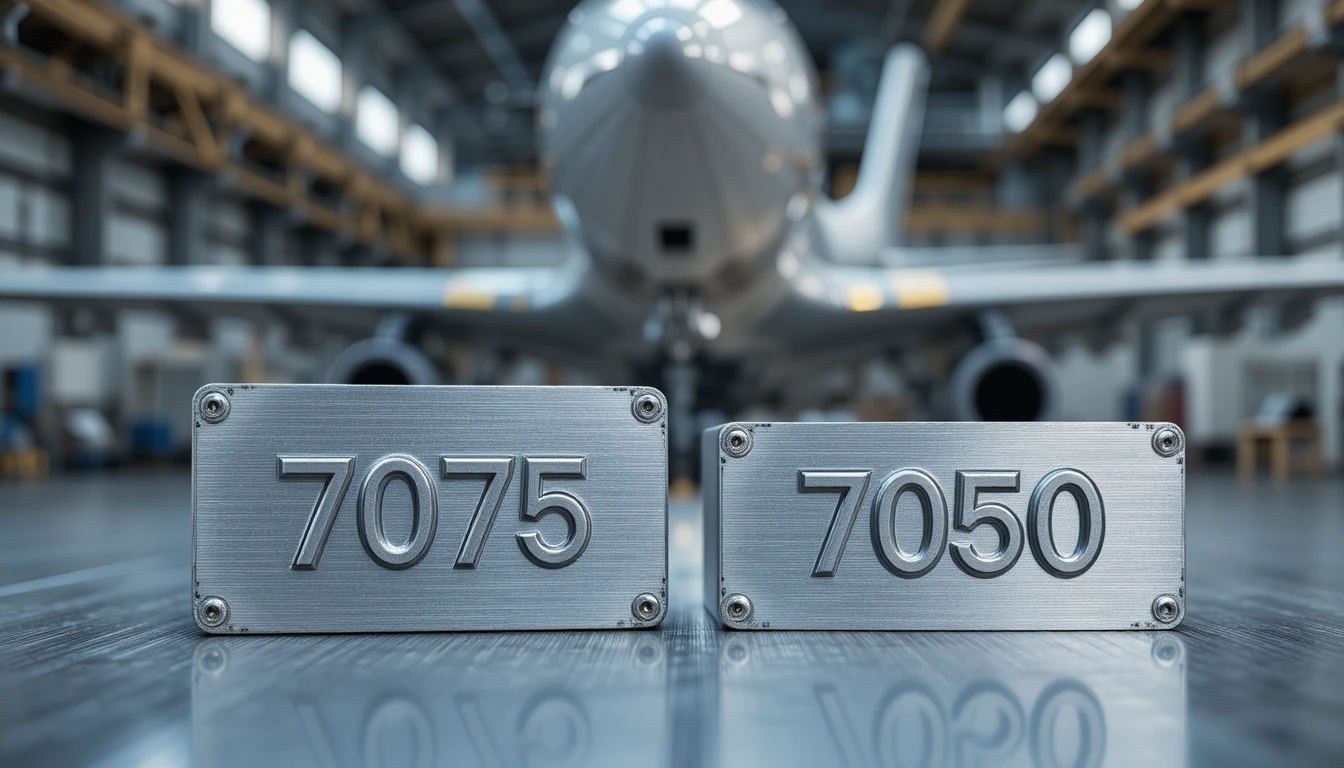
When it comes to designing components for high-stress environments, material selection is paramount. For industries like aerospace, defense, and high-performance motorsports, every gram of weight and every measure of strength matters. In this demanding arena, 7075 aluminum and its close relative, 7050 aluminum, have emerged as true game-changers. These alloys offer a remarkable strength-to-weight ratio that rivals that of many steels, making them essential for modern engineering.
This article delves into the world of 7000 series aluminum alloys, focusing on the exceptional properties of 7075 and 7050. We will explore what makes these materials unique, compare their specific advantages, and highlight their critical roles in high-strength aerospace materials and other demanding fields. Understanding these alloys will help you make a strategic choice for your most critical projects.
The 7000 series aluminum alloys are renowned for their extraordinary strength, which is primarily achieved by using zinc as the main alloying element. Often combined with magnesium and copper, these alloys are heat-treatable, allowing their mechanical properties to be enhanced to impressive levels. This series contains some of the strongest aluminum alloys available, making them a direct competitor to steel in many structural applications.
Key attributes of the 7000 series include:
7075 aluminum is arguably the most famous and widely used alloy in the 7000 series. Its reputation is built on an outstanding combination of high strength, good toughness, and adequate machinability. For decades, it has been the benchmark material for applications where strength is the most critical design parameter.
The defining characteristic of 7075 aluminum is its impressive strength-to-weight ratio. In its T6 temper condition, its strength is comparable to many common steel alloys, but at only one-third of the weight. This property alone makes it invaluable for applications where weight reduction is a primary goal. While its corrosion resistance is not as high as that of other aluminum series (like the 5000 or 6000 series), it can be significantly improved with anodizing or by using a clad version (Alclad). Industry studies show that the use of 7075 aluminum in aircraft structures can lead to a weight reduction of up to 25% compared to steel components without compromising strength [Source: Aerospace Engineering Journal 2024].
The exceptional properties of 7075 aluminum have cemented its place in several high-performance sectors. It is commonly found in:
While 7075 is a fantastic all-around high-strength alloy, 7050 aluminum was developed to improve upon some of its key characteristics, particularly for thick plate applications. It offers a better balance of properties, especially in terms of toughness and resistance to stress corrosion cracking (SCC).
The primary benefit of 7050 aluminum is its superior resistance to stress corrosion cracking, especially in thicker sections. This makes it a more reliable choice for large, monolithic structural parts that are subject to sustained stress in a corrosive environment. Furthermore, 7050 retains its strength properties at a high level while exhibiting greater fracture toughness than 7075. This means it is more resistant to crack propagation, a critical safety factor for high-strength aerospace materials. (External Link: National Association of Corrosion Engineers)
Thanks to its enhanced properties, 7050 aluminum has become the material of choice for specific, highly critical applications, particularly in the aerospace and defense industries. You will find it used for:
The choice between 7075 aluminum and 7050 aluminum comes down to the specific demands of the application, particularly section thickness and the operational environment.
Here is a simple guide to help you decide:
Consulting with an experienced material supplier is crucial. They can help analyze your design requirements and guide you to the alloy and temper that will deliver the best performance and safety. (Internal Link: Linsy Aluminum 7000 Series Products)
Both 7075 aluminum and 7050 aluminum are remarkable materials that have enabled significant advancements in high-performance engineering. While 7075 offers a fantastic baseline of high strength for a wide array of applications, 7050 provides an enhanced combination of strength, fracture toughness, and stress corrosion resistance, making it the premier choice for thick, mission-critical components. By leveraging the specific advantages of these 7000 series aluminum alloys, engineers can continue to push the boundaries of design, creating lighter, stronger, and more durable products.
The first step to unlocking this potential is partnering with a supplier who understands these advanced materials and can provide certified, high-quality products.
Are you ready to elevate your next project with high-performance aluminum? Explore the range of 7000 series alloys at Linsy Aluminum and request a quote today.